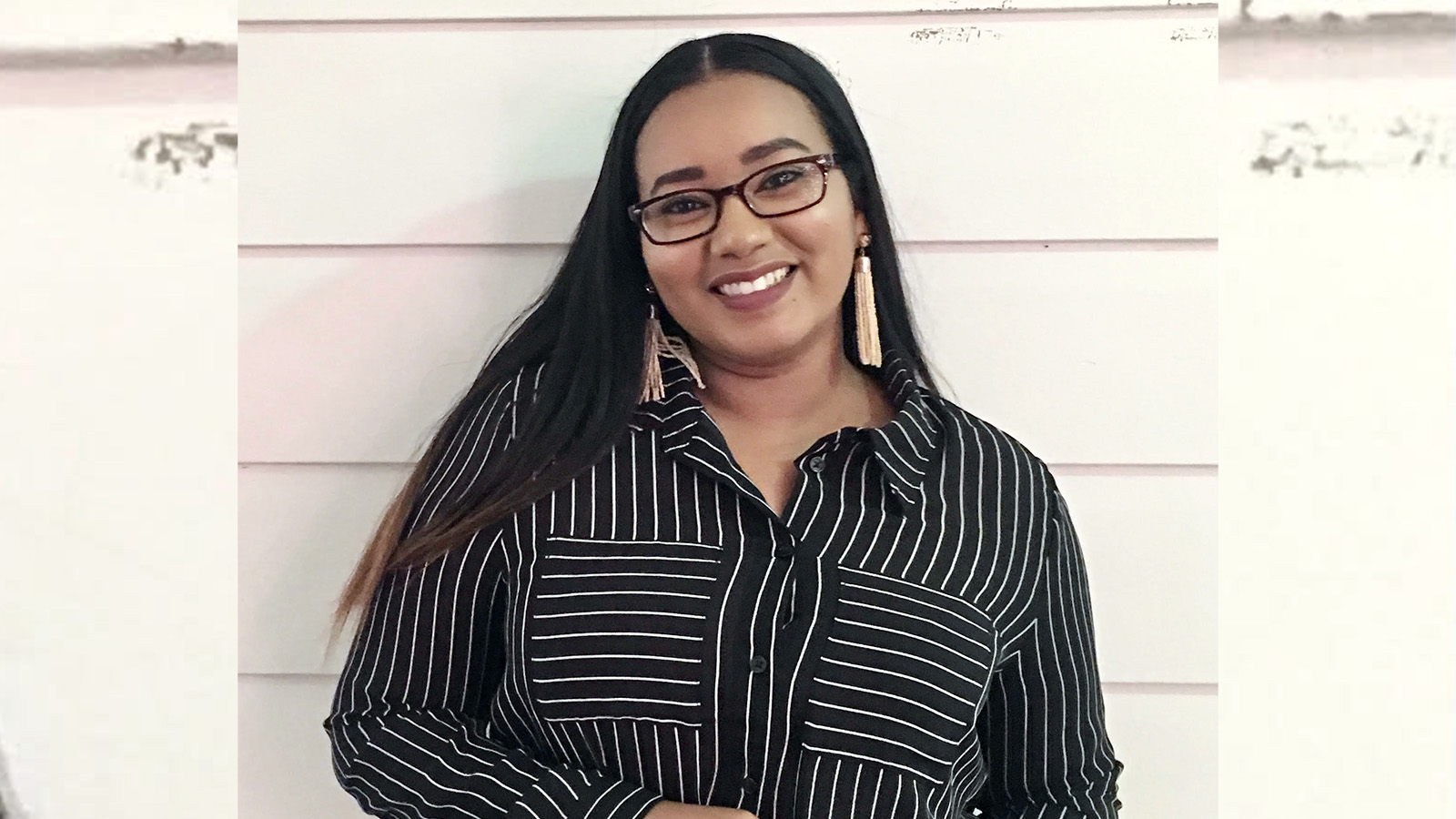English Department Launches ‘Committee for Antiracism, Accessibility, Respect, Equity, and Social Justice’
November 08, 2021

Scheduling Coordinator Sarah Woldekidan discusses plans for revamped committee.
By Rosie Grant
As the nation erupted in protests in the days after the murder of George Floyd, Scheduling Coordinator in the Department of English Sarah Woldekidan reached out to Department Chair Amanda Bailey and asked: “What are we going to do about this?”
They began to discuss changes the English department could make to better address systemic racism, and Woldekidan was invited to be part of the department’s Inclusion, Diversity, Equity, and Access (IDEA) committee, tasked to ensure an inclusive and respectful culture. Woldekidan began to envision an expanded committee.
Now she is beginning a three-year term as chair of the department’s recently renamed Committee for Antiracism, Accessibility, Respect, Equity and Social Justice (CAARES). Made up of 11 tenured and professional track English faculty, staff, graduate students and an undergraduate representative, CAARES advises the department on ways to actively combat systemic inequities and structural racism as well as foster inclusive practices, such as in policies and hiring.
In this role, Woldekidan liaises with the university’s Office of Diversity and Inclusion and Office of Civil Rights. In addition to assisting students, faculty and staff with mandatory reporting processes, she also helps navigate incidents of micro-aggression, bias or inequity. And she works across the department to provide oversight and information about CAARES.
We spoke with Woldekidan recently about her interest in activism and her plans for the committee.
How did you first get involved with thinking about equity and inclusion?
I am from a neighborhood 10 minutes from the University of Maryland. It was not a great neighborhood, and we did not have a lot of opportunities. I’m the child of an immigrant and a first generation college graduate. And I personally grew up in a very politically driven household. I’ve gone to demonstrations and protests since I was a kid. It’s ingrained in me at this point. I’ve never been one to shy away from talking about the hard things.
Do you remember your first protest?
Yes! My mom’s from Eritrea in East Africa, which was in a 30-year war. And when I was young I remember my mom saying, “Hey, you’re not going to school. We’re going to the Capitol and we’re going to march.” And there were all these people there, they had a bunch of signs. I didn’t really understand what was happening but I knew it was for our country. We were marching and chanting and walking down towards the Capitol. And this happened several times as a kid.
From her I learned you have to make some noise. You have to get uncomfortable to get comfortable. She always says that the minute you get uncomfortable you see things in a different light. I’m so communicative for this reason.
How does that inform your goals for CAARES?
My inspiration is coming from a lot of places: my mom, social media, the Black Lives Matter movement. There are so many different organizations that have been pushing to have people talk about the realities of our society. I take inspiration from protests and the movements using social media and spreading reliable information and promoting events to have a conversation.
We’ve been so fortunate to have people in the English department that want to have a conversation and are creating safe spaces to have conversations that need to be had. A lot of people don't know that these spaces are being created. One of the big things I’m hoping to do is to push the events we have in our department to the wider community.
What is one thing you're especially excited about for the future of CAARES?
One of the things we’re starting to work on with English faculty directors and professional staff, like from the Creative Writing and Writing Programs, is a series of best practices guides that will be publicly available on the CAARES webpage. The guides will list how their unit follows the CAARES model, such as anti-racist pedagogy best practices for creative writing courses, creating an inclusive classroom community in academic writing and anti-racist workshops and trainings in professional writing.
I want our faculty, staff and students to know that there are people in our department working to ensure that we’re fighting for people. We are working very hard to grow as a department and to create a welcoming environment for everyone.
Follow the #CAARESUMD hashtag on Twitter.

